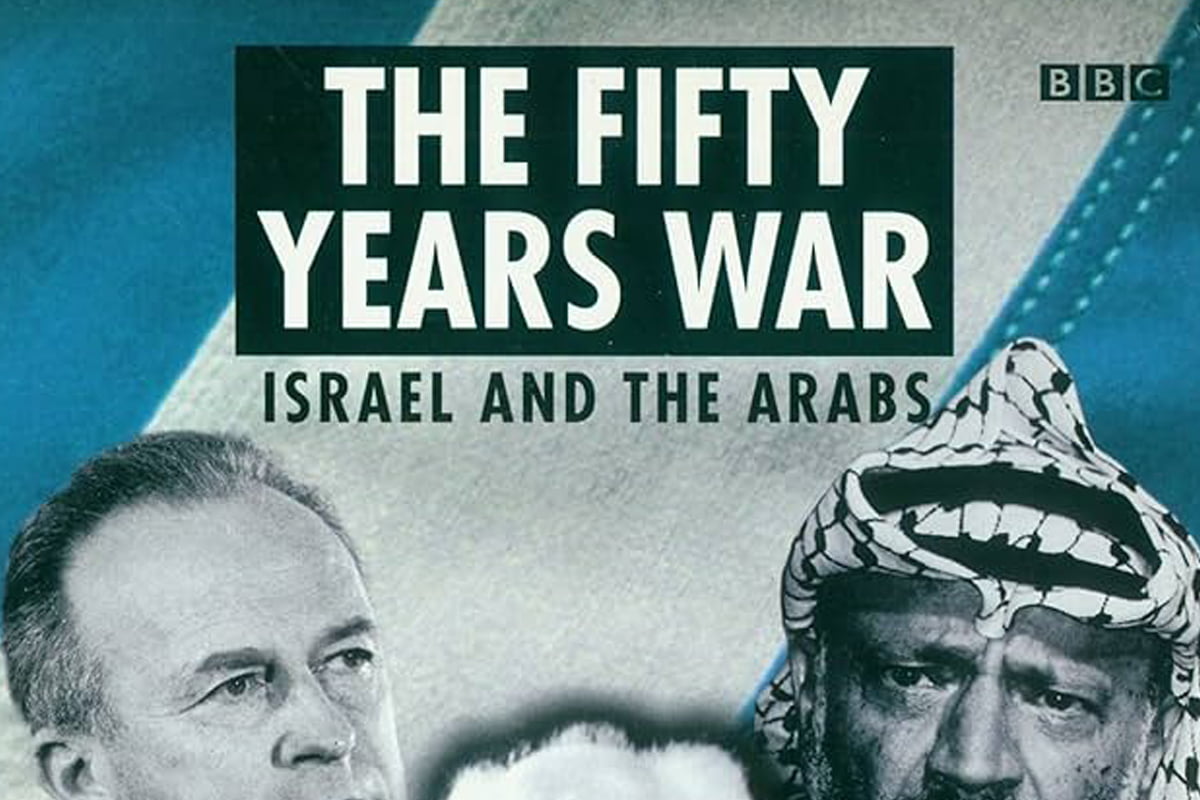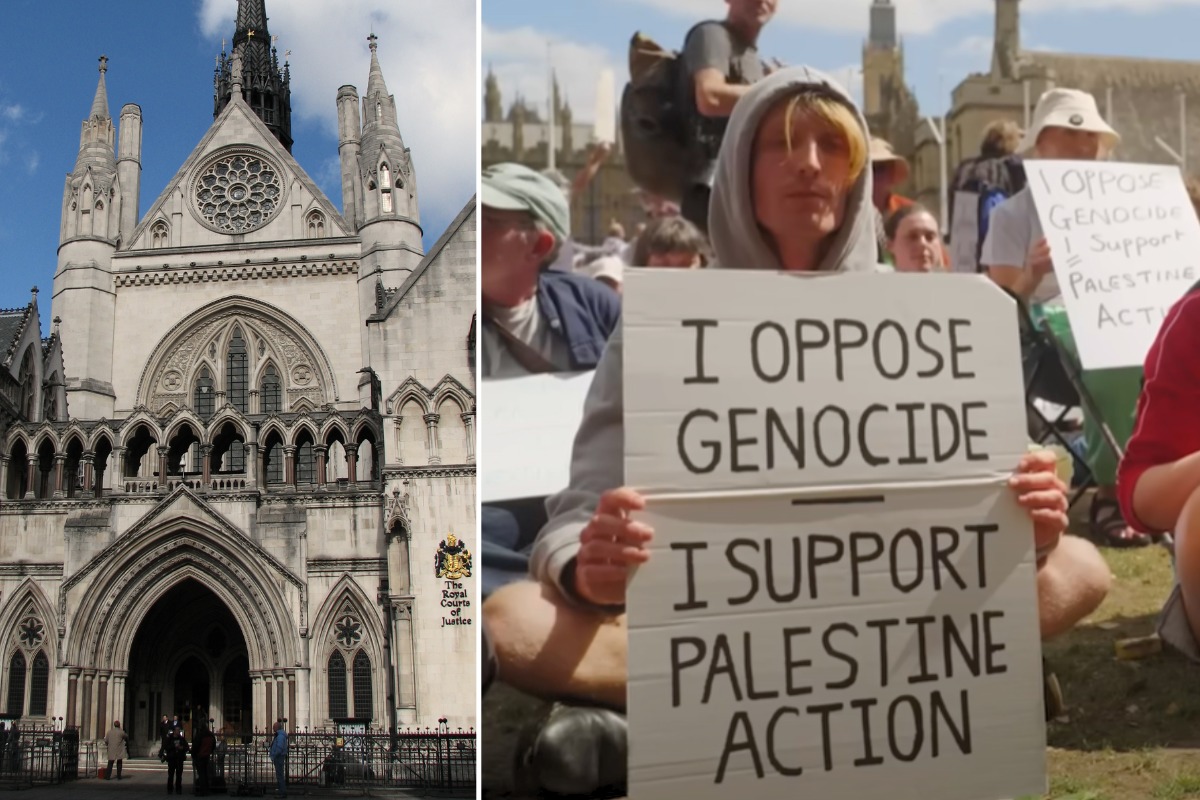In 1998, a six-part series titled The Fifty Years War: Israel and the Arabs (available on BBC iPlayer) drew together the threads of how violence and bloodshed have scarred the region since 1948. The story jostles between interviews and news clips of a rogues’ gallery of Israeli and Arab leaders, shedding light on their cynical calculations.
The series shows, in no uncertain terms, how the creation of Israel necessitated the ethnic cleansing of the Palestinian people. This historic crime, which the BBC has now conveniently forgotten about, is what paved the way for a state of perpetual war between the peoples.
The intrigue and manoeuvring from the imperialists is obvious from the outset. All plans were drawn up, discussed, and decided upon by everyone but the Palestinians themselves.
Episode 5, covering the period of 1987-91, is particularly interesting. On the eve of the First Intifada, you see Shimon Peres – then foreign secretary of Israel – and King Hussein of Jordan secretly meeting in London, scheming to sideline the Palestinian Liberation Organisation (PLO).
An international conference of ‘peace’ (on Israel’s terms) was put on the table, with Peres pressing for the US to lead the charge. But just as these clandestine meetings begin to stall, the Intifada breaks out in Palestine. “This changed everything,” the BBC narrates.
Intifada
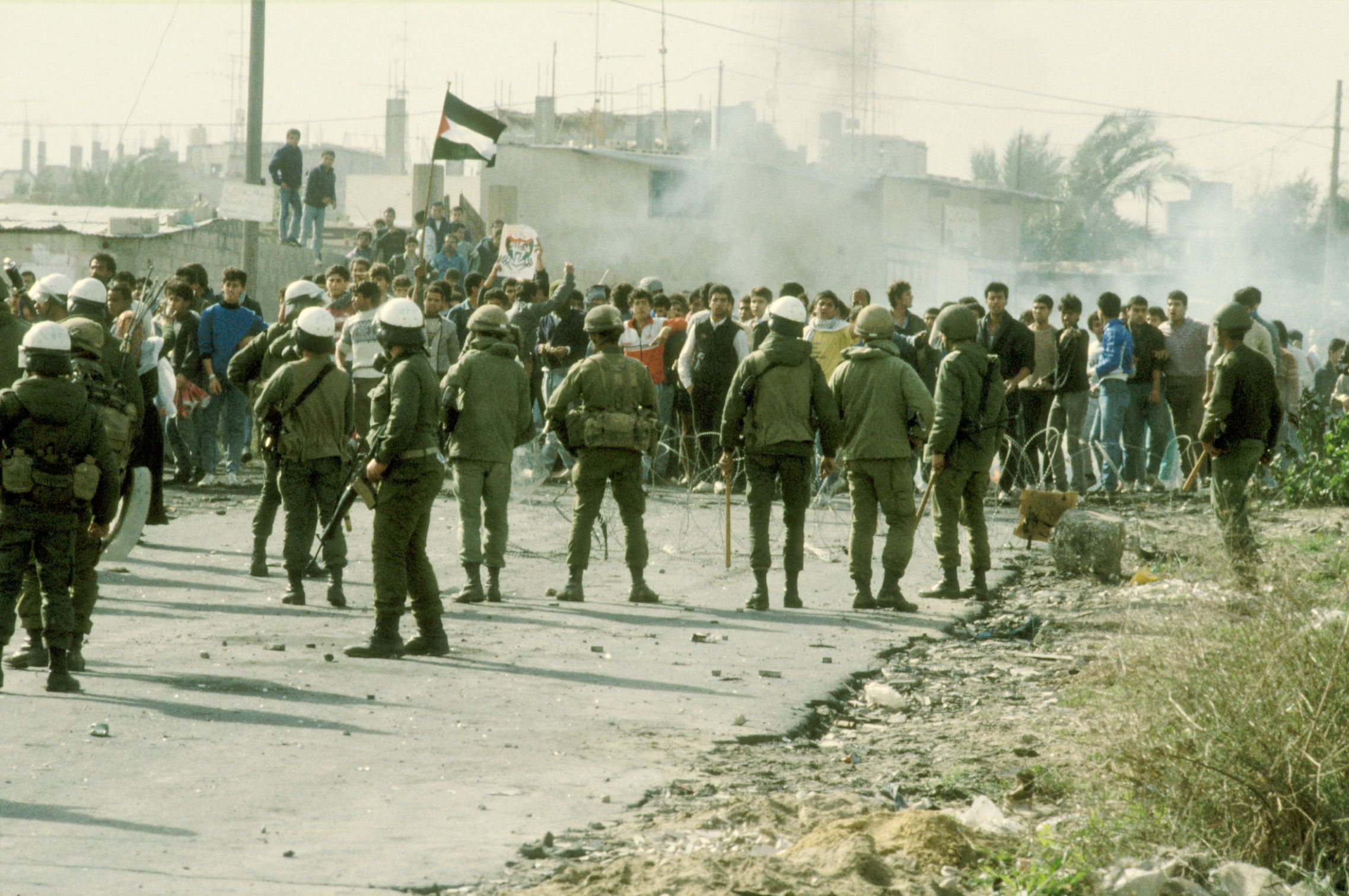
With the patience of the Palestinians wearing thin, and their official ‘leadership’ nowhere to be seen, the masses erupted to the surface after an Israeli trucker killed four Gazans. Protests began to spread, the BBC explains, as “young activists used the opportunity to prepare a leaflet to turn the riot into an uprising”.
Wasting not a minute, communiques issued a call for a Palestinian general strike and for shopkeepers to shut their businesses. They were distributed in their tens of thousands, with the first titled: The voice of the Intifada will not be silenced.
Class methods of mass struggle were front and centre of the First Intifada.
A snippet of then Israeli Prime Minister Yitzhak Shamir is shown in which he brands the demonstrators as “violent”. But this was obviously a lie, as the documentary exposes.
Episode 5 highlights how, in December 1987, the early organisers of the First Intifada consciously decided not to go down the road of “armed struggle”. Instead, they opted to maintain the fightback as a mass movement of protest led by locally-elected committees.
Moreover, the shebabs – the young Palestinian boys fighting against the Israeli Defence Force (IDF) – were armed with nothing more than sticks and stones.
This caught the Israelis off guard. The mass struggle was putting “new strains” on the Israeli coalition, the BBC explains, precisely because it had nothing in common with individual acts of terrorism.
As a result, the grip of Zionism over ordinary Israelis began to loosen, creating unforeseen complications.
All the tactics used to break the back of the Palestinian movement backfired. An Israeli general recounts the low morale of his troops, with his weariness about blowing up homes rubbing off on them. “We trained to fight against other soldiers, now we fight against people,” a young IDF soldier complains. “It’s difficult.”
War criminals
The documentary also reveals the “horrifying suggestion” made by members of the Israeli cabinet to deliberately kill a thousand Palestinians in order to “crush the Intifada”.
In the end, this “send-in-the-tanks” proposal was rejected. But the reasons why speak volumes. Israeli ministers were not worried about spilling the blood of Palestinian children. But they were worried that they would be branded “war criminals”.
The more sensible wing of the Israeli ruling class also foresaw that the kill-a-thousand ‘solution’ would not calm things, but would lead to a much greater conflagration across the region.
In the end, the ‘only democracy in the Middle East’ ended up issuing directives to Yitzhak Rabin to break the bones of the shebabs. And the Israeli ruling class did end up exceeding their target of 1000 dead – just over a longer period of six years.
PLO betrayal
The documentary gives a blow by blow account of how the PLO leadership, organised around the figure of Yasser Arafat, were bought off.
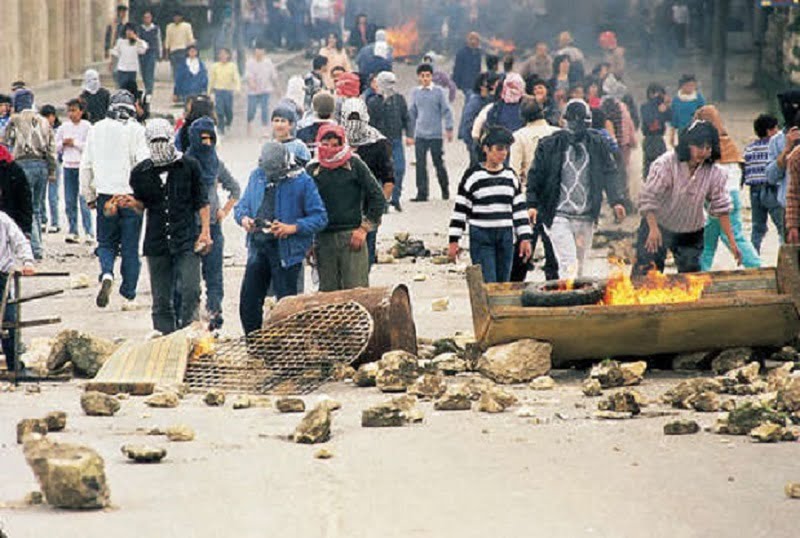
One PLO official recounts at the start of the Intifada: “We didn’t know who issued the leaflets. We were worried. We wanted to know who was behind this”.
A year later, after the grassroots leadership had been murdered or arrested en masse, the PLO manoeuvred their way into the leadership.
Flowing from their narrow, conspiratorial politics, the PLO blew up an Israeli bus. This triggered a spiral of reaction and repression against the Palestinians. But this did not subdue the Intifada. The masses continued to organise and mobilise, basing themselves on methods distinct from those of the PLO guerrillas.
Something drastic had to be done. In the documentary, viewers can watch how sections of the Israeli ruling class began to test out just how pliable Arafat and co. were to bargaining with Israel, whilst openly warring in words with the PLO.
It was to their great relief that Arafat was down to parlay: trading the masses’ militancy on the streets for the prestige of being the officially recognised representatives of Palestine.
This is scandalously illustrated in Episode 6 when Joel Singer, an Israeli lawyer, recalls a back and forth he had with a PLO negotiator at Oslo:
In the agreement you wrote, it says you will have jurisdiction over the West Bank. Now what about the settlements? Do you intend to go into the settlements, to send your tax collectors into the settlements?
‘No.’
Do you intend to use Palestinian teachers and curricula?
‘No.’
So you mean the settlements will not be under your authority?
‘Certainly not.’
As to Jerusalem, will Israel continue to rule over Jerusalem?
‘Yes.’
Straight from the horse’s mouth, the documentary shows the connivance of the Israeli ruling class. At every key junction in the conflict, their desire to seize Eretz Israel for the Jews and Jews alone shines through. What has differed throughout has been the means of getting there, never the overarching goal.
Establishment amnesia
In this documentary, the BBC itself explained the true nature of the Intifada as a genuine mass movement from below, using the methods of general strike and mass protest. And yet today, anyone raising the Intifada slogan is scandalously accused of fomenting anti-Jewish violence.
Indeed, a fog of collective amnesia surrounds BBC HQ. The Beeb’s (predictable) editorial line, reflecting that of the British establishment more widely, has been: use October 7 as a fig leaf to obscure the countless provocations of fanatical settlers and the Israeli ruling class that have made war, once again, inevitable.
Eight journalists working at the BBC have protested against this, writing a scathing letter to Al Jazeera accusing the BBC of a “double standard in how civilians are seen”, as part of a conscious attempt by western imperialism and its mouthpieces to dehumanise Palestinians.
Written in anonymity, the letter explains how the institutional pro-Israeli bias has fixed the framing of the ‘conflict’ from the very beginning. “For Israel’s bombardment to be considered ‘self-defence’,” the journalists’ statement reads, “events must begin with the Hamas-led attack.”
And the biggest irony of all, is that their own 1998 documentary explains in stunning detail just how we got here in the first place.
Tell the truth
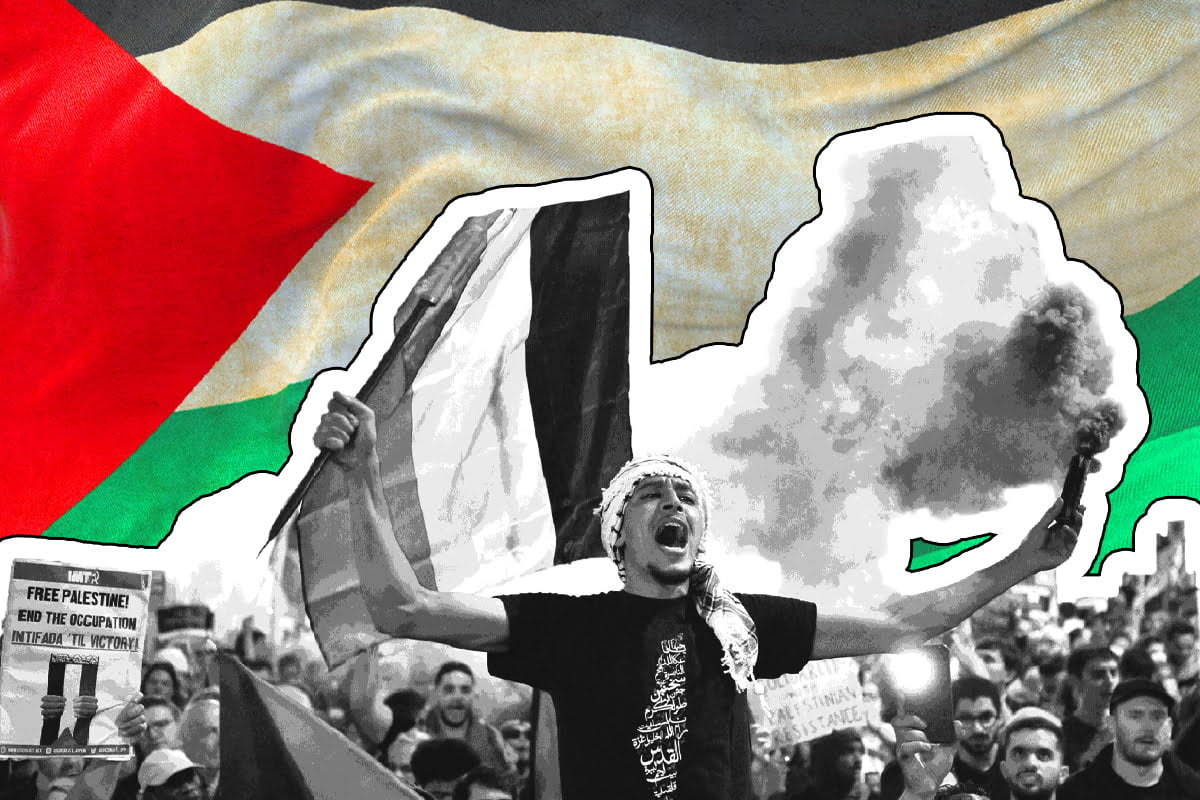
The Intifada threatened the very basis of Zionist rule, and undermined the self-styled leaders of Palestine. As a result, it was hastily sold down the river by the PLO with the Oslo Accords, engineered by Washington and catered to by Israeli imperialism. This faux peace process has made misery, conflict, and violence the order of the day.
This is the real history that the BBC has been careful to conceal, given the current climate. But in reality, BBC hacks have always been happy to falsify history or current events for the sake of political expediency.
Today, it is the war on Palestinians that must be distorted. Tomorrow, it will be the ruling class’ attacks on basic democratic rights – such as workers’ right to organise and strike – that will be skewed.
But a mere leaf through the BBC’s own archives provides an account that is completely at odds with what emanates from today’s Ministry of Truth.
Clearly, when it comes to loyally defending the interests of British imperialism, the old journalistic adage still holds true: why let facts spoil a good story?

